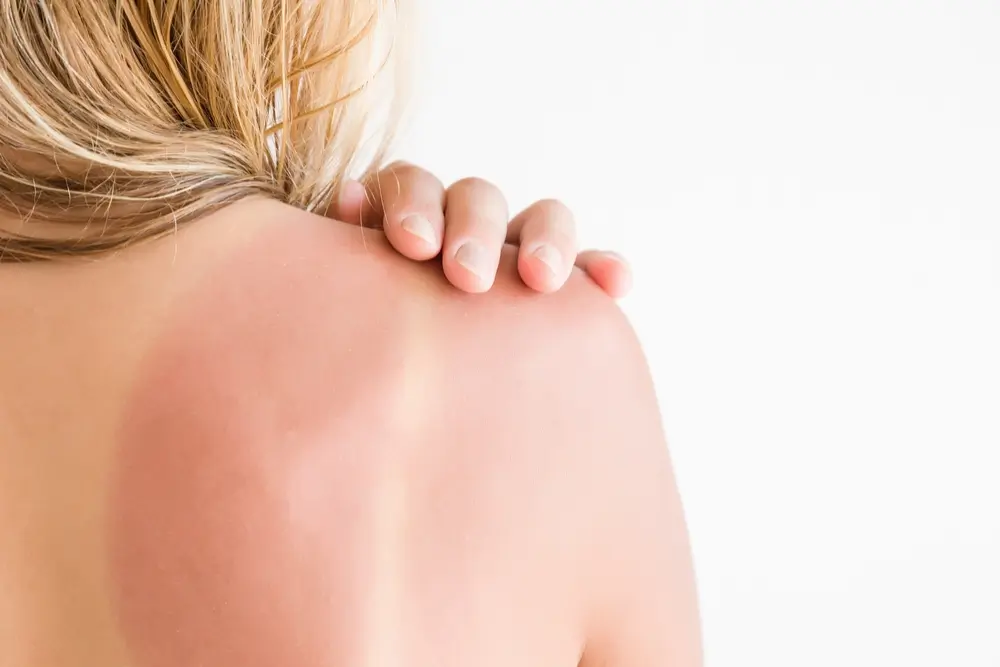Sunburn- what’s the best treatment?
We all know we should be sun-smart and steer clear of sunburn at all costs- but now and then it happens accidentally, due to a quick snooze in the sun or a long afternoon on the beach. So, if the damage has been done, what is the best treatment?
What is the best treatment for sunburn?
- Anti-inflammatories may reduce inflammation and discomfort, especially if given early, though they do not heal the sunburn faster. Other painkillers such as Paracetamol may also help.
- Soaks with cold water may also reduce pain. Cold running water may give more relief than a soak or compress.
- Further sun exposure should be avoided as the burn heals.
- Topical treatment with aloe vera is popular- whilst some people find it soothes the pain, there is little scientific proof that it speeds recovery time.
- Dehydration may accompany bad sunburn, so plenty of fluids are encouraged.
- Whilst it may be tempting to try a topical anaesthetic cream or gel, these can be irritating, and should be avoided.
- There is no evidence for using topical or oral steroids, and they may actually increase the risk of infection in the burn.
- If the sunburn looks bad or involves quite a lot of skin, the best advice is to attend your local doctor (or emergency department if it appears particularly severe or widespread). Ongoing dressings may be recommended once or twice a day to soak up any weeping or discharge, to assist with healing, and to prevent infection.
What about dehydration?
If a person gets sunburn, quite often they will also experience dehydration. Oral rehydration with water or oral rehydration salts may be enough. But if the sunburn is severe, or if a person feels weak, dizzy or unwell, they may be more seriously dehydrated- intravenous fluids may be needed through a drip, so a doctor should be consulted as soon as possible.
When is sunburn serious? When is admission to hospital needed?
- Sunburn needs to be assessed just like any other type of burn- and like any burn it should be taken particularly seriously in children. If you’re not sure, or if the burns seem widespread, deep or severe, ask your doctor.
- Admission to hospital or a burns unit is needed if there are second degree burns involving more than 25% of the body surface in an adult under the age of 50, or more than 20% of the body surface in children under 10 years/ adults over 50 years.
- A second degree burn is when the epidermis (uppermost layer of skin) and part of the dermis (second layer of skin) are damaged. A second degree burn will tend to be red, blistered, swollen, weeping and painful.
- If the pain is very bad, or if there is dehydration, infection, heatstroke or general unwellness, admission to hospital may also be advised.
- Heatstroke tends to cause fever, headaches and vomiting. Burns may get infected after a day or two- high temperatures, chills, and/or pus-like discharge from the damaged skin are signs of infection. In both these cases, urgent medical attention is needed.
How do you prevent sunburn?
- Sunburn and excess sun exposure increase the long term risk of skin cancer.
- When possible, keep skin covered on sunny days with light loose clothing, and wear a broad-brimmed hat.
- Use water-resistant sunscreen- SPF 30 or higher. It needs to be applied 20 minutes before sun exposure, and reapplied every 2 hours.
- Remember, sunscreen is not enough on its own- it’s still important to wear suitable clothing and a hat, and to seek shade where available.
- Wrap-around sunglasses with high UV protection are also recommended.
- Babies under a year old should not be exposed to UV levels higher than 3.
- Widespread application of sunscreen is not recommended in babies younger than 6 months- instead, the focus should be on correct clothing and seeking shade, with sunscreen used on small areas only. A patch test on a small area of the skin should be done before using it elsewhere on the body.
If you have further concerns about sunburn, speak to your GP or pharmacist.
Getting a Mental Health Care Plan in Australia: Your Guide
Getting a Mental Health Care Plan in Australia: Your Guide Mental health matters—and if you’re feeling overwhelmed, anxious, or down, a mental health care plan can help. But what is it, and how do [...]
UTI Symptoms and Treatment: What You Need to Know
UTI Symptoms and Treatment: What You Need to Know Urinary Tract Infections (UTIs) are common, uncomfortable, and often disruptive. But what exactly are the signs to watch for, and how can you get relief [...]
Free Mental Health Care Plan Online | Bulk-Billed by Qoctor
Free Mental Health Care Plan Online | Bulk-Billed by Qoctor Discover how to get a free, bulk-billed Mental Health Care Plan (MHCP) in Australia through Qoctor's telehealth service. Accessing [...]






